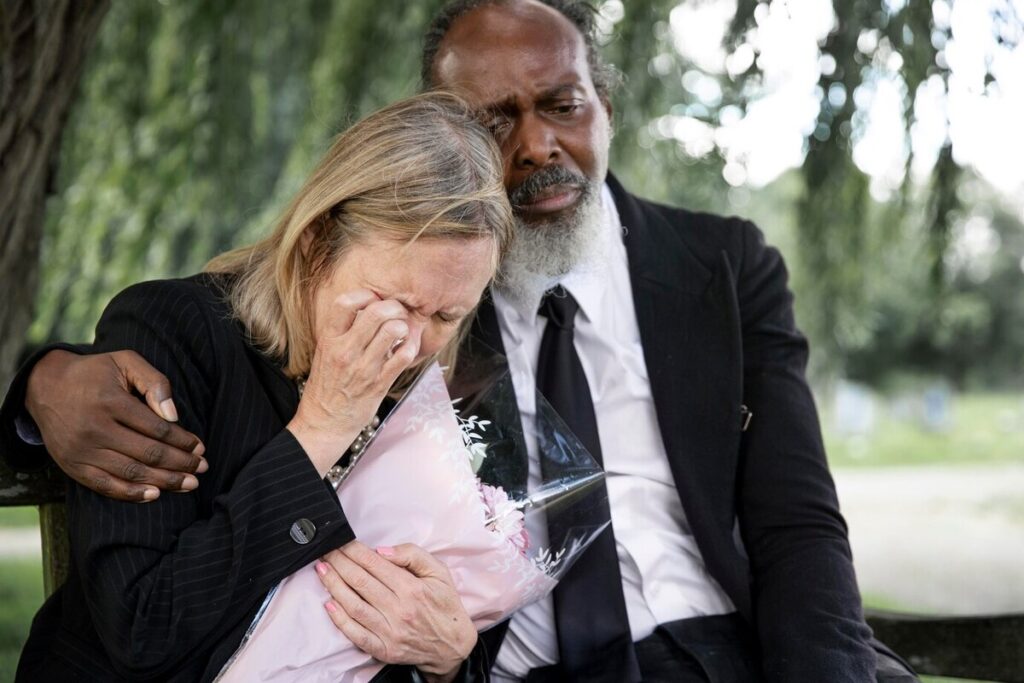What Are 20 Things Older People Really Dislike?
As people age, their viewpoints and priorities can change, leading to a collection of dislikes that mirror their life stage. This compilation highlights different aspects of contemporary life that might frustrate older individuals, emphasizing their difficulty in adapting to societal changes and advancements in technology. Understanding these dislikes is crucial for fostering empathy and enhancing communication across generations.
Disrespectful Speech

Witnessing disrespectful language, particularly when aimed at older individuals or authority figures, can be deeply distressing and offensive to those who value politeness and civility. Such speech undermines societal norms and signifies a lack of regard for basic respect and decency, leaving older adults feeling disheartened and saddened by the diminishing emphasis on manners in society.
Impolite Behavior

Encountering impolite behavior from others can be very irritating for seniors, whether it’s impatience, disrespect, or outright rudeness. Having been raised in a time when manners and courtesy were more highly regarded, they may perceive such conduct as particularly shocking and unpleasant. This can lead to feelings of frustration and disappointment regarding the decline in societal niceness.
Overly Crowded Spaces

Many older individuals find that crowded areas like malls, airports, and public transit can be overwhelming, resulting in feelings of stress and anxiety. The hustle and bustle, along with the noise and chaos, can be particularly challenging for seniors who often prefer more tranquil settings.
Noise Disruption

For many older adults, having a quiet and serene environment is crucial for relaxation and well-being. Thus, loud sounds from construction, traffic, or boisterous neighbors can be both bothersome and disruptive, causing irritation and unease. As people get older, they may become more sensitive to noise, making them more prone to disturbances that younger people might not find bothersome.
Slow Wi-Fi

Internet connections that are slow can be particularly infuriating for older adults who depend on the internet for connecting with others, entertainment, and accessing information, but may have less patience waiting for pages to load.
Automated Customer Service

For those who are used to more direct methods of communication, dealing with automated customer service systems can be frustrating and time-consuming. The impersonal nature of these systems can leave seniors feeling agitated and disconnected, especially if they struggle to comprehend the prompts or hear the instructions.
Tech Malfunctions

Older generations often find it particularly challenging to navigate new technologies, as they may struggle with tasks that younger people find simple. From resolving errors to deciphering complicated interfaces, frustrations associated with technology can greatly affect the daily experiences of older adults. As digital advancements continue to progress rapidly, closing the technological gap and offering support for older individuals becomes increasingly important.
Health Issues

For older adults, managing age-related health difficulties, including chronic pain, mobility challenges, or cognitive loss, can be emotionally and physically taxing, which can make them detest their restrictions.
Inadequate Customer Support

Elderly people used to polite and effective assistance may find it difficult to navigate through subpar customer service, whether from companies or government organizations. They may feel ignored and undervalued as consumers or citizens as a result of lengthy wait times, incompetent staff, and bureaucratic red tape.
Ageism

Older adults who encounter ageism in the job, in healthcare facilities, or daily encounters may feel excluded and devalued, which can cause them to become resentful and frustrated.
Loss of Independence

When physical or cognitive deterioration causes an older person to lose their independence, it can cause them to feel frustrated and deeply lost. It can be difficult to become used to depending on others for everyday chores or decision-making, especially if they have always valued independence and self-reliance. As they manage these changes, it’s critical to offer them encouragement and support so they may continue to live their lives with agency and dignity.
Insufficient Comprehension

For older people, managing chronic pain or discomfort—whether from back problems, arthritis, or other age-related conditions—can be extremely taxing and discouraging. The enduring nature of these discomforts can cause irritation and powerlessness, interfere with everyday tasks, and lower quality of life.
Financial Stress

Concerns about inflation, healthcare costs, or retirement funds can all contribute to financial stress, which can make older people anxious and unhappy. Feelings of vulnerability and insecurity can result from the unpredictability of managing finances on a limited income, particularly when unforeseen bills crop up. It is possible to lessen the strain and foster better peace of mind in their older years by offering them the assistance and tools they need to deal with financial difficulties.
Isolation

Feeling alone or isolated can have a significant impact on older people, causing them to feel depressed and unsatisfied, especially after retirement or after losing a spouse or close friend. Their mental and emotional health may be impacted by loneliness, which can be made worse by a lack of meaningful interactions and social ties. Loneliness can be reduced, and a sense of fulfillment and belonging can be fostered by offering chances for social interaction and support systems.
Social Shifts

For elderly people who may feel disconnected from the modern world, it might be unnerving to observe the quick changes in society, such as political division, cultural norm alterations, or technical breakthroughs.
Age-Related Prejudice

For older persons who should be treated with respect and dignity, experiencing age-based discrimination in social, professional, or housing contexts can be demoralizing and upsetting.
Loss of Loved Ones

For older people, dealing with the death or estrangement of a loved one can be emotionally devastating, resulting in intense feelings of loneliness, despair, and grief. A sensation of emptiness, desire, and difficulties adjusting to living without the company and support of people who were formerly essential to their lives may be evoked by these losses.
Unchangeable Policies

Older people who feel ensnared by bureaucracy may find it frustrating to deal with rigid policies or regulations, whether they come from financial institutions, insurance firms, or government bodies.
Physical Pain

For older people, managing chronic pain or discomfort—whether from back problems, arthritis, or other age-related conditions—can be extremely taxing and discouraging. The enduring nature of these discomforts can cause irritation and powerlessness, interfere with everyday tasks, and lower quality of life.
Related: 15 Clever Hacks To Reduce That Never-Ending Grocery Bill

Managing grocery expenses can be challenging for many households, especially with rising food costs and fluctuating budgets.
However, with some creativity and resourcefulness, you can implement numerous clever hacks to reduce your never-ending grocery bill without sacrificing the quality or variety of your meals.






